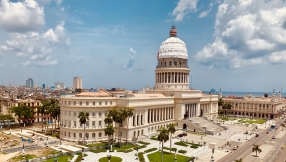New book explores human genome project
The book attempts to answer questions such as what constitutes a worthwhile life, what it means to be made in the image of God, how far we should intervene in ‘natural’ processes or the extent to which we should go to alleviate suffering, and whether the human genome be ‘owned’.
The book brings together individual essays by leading experts and thinkers from a range of disciplines - from law to theology, and genetics to patent agency - to help the non-expert engage with this vital area.
The Rev Dr Malcolm Brown, Director of Mission and Public Affairs, says in the preface to God, ethics and the human genome: “Christians should arrive at their ethical positions by an authentic process of deriving principles from Scripture and doctrine. This leaves open the possibility that others, of different faith traditions and none, may share the same ethical stance as Christians on some specific matter.
“It also leaves open, importantly, the possibility that Christians may disagree among themselves, since there may be more than one tenable conclusion to be drawn from the inheritance of Scripture and the Church’s teaching.”
Dr Philip Giddings, Chair of the Mission and Public Affairs Council, said the book’s aim was to "shine the light of the gospel" upon an area of debate "too significant for humankind to be left to experts".
“It was commissioned by the Church of England’s General Synod, but we intend it as a resource for continuing debate, not a ‘policy statement’ from the Church," he said.
"The report does not conclude with a single judgement on the ethics of the genome project, nor have the contributors come to a single mind.
"The purpose of the report is to open up a complex question of great moral significance, not to present the Church, the government or anyone else with a series of cut and dried recommendations.”













